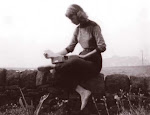1. Chinua chooses to bring in the European Colonial presence only in the third part to show how the novel will end hen the people do not stay united and fight for their culture as one.
2. Umuofia changes severely during the seven years Okonkwo is exiled , the clan loses it's spirit and unity, people go this way and that way and forget their principles, and the people who still believe the religion is evil can't go against them because some of their own kind are amongst them.
3. The Kotma only seem to be the people that carry out the orders of the people of a higher rank. The laws between Umuofia and the white man's law are very different. A few of their many differences is that the white men think everyone is equal and entitled to learn from god while the people of Umuofia believe in abominations exiling people, their religion and beliefs seperate them.
4. Obierka responds that it is already too late some of their number have already joined and become christians. According to Obierka the white man has been very clever because he comes quietly and the people think him a fool then he converts their own people and hen the clan falls apart bvecasue they are no longer united .Obierka can be considered a transitional figure between the old adn the new Igbo society because although he appreciates theold IGbo ways heunderstands that things are changing as well as people.
5. Mr. Brown and Mr.Smith had very different methods of converting people, Mr. Brown seemed to want to understand people and get to know them, whereas Mr. Smith saw things in black and white and he openly reprimanded Mr.Brown's ways. The conversation between Akunna and Mr. Brown explained how in the Igbo culture there is one supreme God and the other Gods are merely messengers, Mr. Brown in response said that it was wrong for them to think God needed help. Umuofia was at the brim of a war between the christians adn themselves but Enoch was the man who set it off by unmasking one of the spirits. A few of the many misunderstandings that made the conflicts inevitable was their religion which accompanies belief and tradition.
6. Some in Umuofia, however, feet very differently from Okonkwo on the subject of the white man's stay, they appreciated how the money flowed into Umuofia after the white man set up the trading store. " religion and education go hand in hand" because when someone converted they also went to school as Nwoye did they learned more to understand their new religion and to advance in life.
7. The district commissioner tricked the six leaders of Umuofia into jail by asking them into a private meeting. The first couple of days they kept silent but when Okonkwo spoke he was the one to say that they should have killed the white man. Okonkwo killed the messenger because of the anger he held from when he was held captive and the anger he has for what has become of his clan. Okonkwo commits suicide because everything he has ever lived for is gone. Okonkwo is Isolated in the end not because he dies alone but because he was one of the last to believe in their clan and want to save their spirit. In this point of view Okonkwo seemed very much like a tragic hero however some other time in another place I may find something else out and find that Okonkwo is not a hero at all.
8. The way the District commissioner describes it he would have most likely phrased it in a way that made the Igbo clan sound stupid and ignorant, I believe that the District commissioner would have only put it in his own prespective. Achebe made Okonkwo the subject of the whole novel because he wanted to explain everything in the form that the reader could form their own personal views and judgments on Okonkwo's actions.
9. Things fall apart in the novel because the clan did not stay united and the clan did not stay united because the stronger part of the clan did not address the weaker parts and the weaker parts were what made the stronger parts strong. Some of the major themes were beliefs, religion, and tradition these three seemed to stand out during most of the novel since the beliefs and religions brought conflicts and the traditions added to the conflicts. As in with the egwugwu and Enoch, Nwoye, and other things that wouldn't have happened if only the people could understand each other.
10. Achebe produced not only a entertaining novel but one that everyone could understand, one that could take you back to your own ancestors and make you think " could this have been their story?" It was very realistic and I really appreciated how he made it so that anyone could understand it.
Saturday, July 21, 2007
Subscribe to:
Post Comments (Atom)

















No comments:
Post a Comment